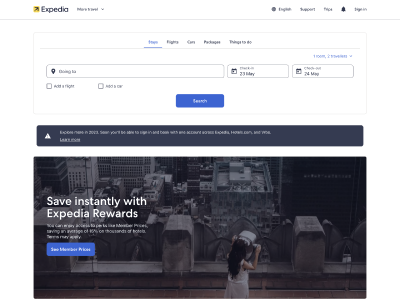About the client
Compare Club offers a service that’s passionate about making it quicker and easier for Australians to save money on their biggest household expenses. With a team of over 250 experts, they are ready to help their customers with their finances every day.
Compare Club provides a service primarily to people over 40, to help compare financial products including loans, energy, insurance, and credit cards. When looking at their health insurance offering, their key audience is ‘senior switchers’ – older consumers who need a lot of reassurance and questions answered as they’re generally very loyal to their existing health funds.
Prior to April 2022 when we began working with Compare Club, conversion was driven by the call centre. There was a missed opportunity when it came to using digital channels, such as their website, to convert people – not only because consumers can research insurance at a time that suits them, but also because it reduces the need for additional call centre staff (which impacts their bottom line).
Challenge
Increasing conversion when personal information is required involves extra consideration
Improving conversion was only one part of the story
Compare Club came to us at In Marketing We Trust because they wanted to improve the conversion rate for their health insurance website by 10%.
It was clear that despite some good infrastructure by way of technology and data, there were a variety of things that could be done to increase engagement and, ultimately, conversion for this site. This was important as between 60-70% of consumers dropped off at the second step in the conversion funnel.
Generic landing pages don’t serve all needs
One key challenge that was immediately apparent, was that paid traffic needed to be shown a landing page that was specific to someone coming to the site via paid activity, rather than a generic landing page. As the highest converting channel, paid search needed to be fine-tuned to really make the most out of Compare Club’s budget.
Understanding friction points was vital
We identified common friction points for consumers who are asked to provide personal information before receiving a detailed response from Compare Club. Common concerns included:
- Will they be subjected to aggressive sales activity?
- Will the information really suit their individual needs (or just benefit Compare Club)?
- Would they be able to see the value given to them in return for their details?
Solution
Building upon an existing foundation to bring focus to the problem at hand
Luckily, Compare Club was already undertaking conversion rate optimisation (CRO) and had the technology and data already in place. This meant we didn’t need to convince the team to spend time or money on bringing in new tech – and this allowed us to jump straight in to help improve their CRO in relation to their health insurance offering.
The proposed solution consisted of a 12-week program of work, with the initial four weeks focusing on audits and research, and the final eight weeks running through testing and result validation.
We look at quality over quantity when undertaking testing for our clients. It can be tempting to try many things at once, but choosing a smaller number of tests to run allows for better analysis, which can then result in more tests down the track.
Getting started with some quick wins
Our analysis lead to us discovering some issues that could be fixed quickly and easily for immediate impact, they included:
Addressing page speed issues on mobile – specifically for the top 5 ranking pages. The faster a site is, the higher the conversion rate tends to be
Fix 1,500+ broken links – as they negatively impacted user experience
Add automatic postcode detection and prefill field – to reduce the amount of information a consumer needs to enter
Show numeric keypad on mobile – specifically when asking for postcode or phone number, as it reduces friction when adding information
Add field labels outside of inputs
Remove floating sidebar from all pages within the quote funnel



Results
Hyper-relevant landing pages for paid activity showed significant increases in conversion
When reviewing the results of the AB testing, we saw an increase in conversion for variation B (the hyper-targeted landing page shown for visitors coming to the site from paid activity) of 20.74% – more than double the goal of 10%.
On desktop, the results were even more impressive, with an increase of 60% for full funnel completion. This, alongside a 28.12% increase for conversion through to the last step of the funnel, shows how some research, planning, and testing can go a long way to improving conversion rates.
increase in final step conversion
increase in funnel completion (desktop)
increase in second step conversion




